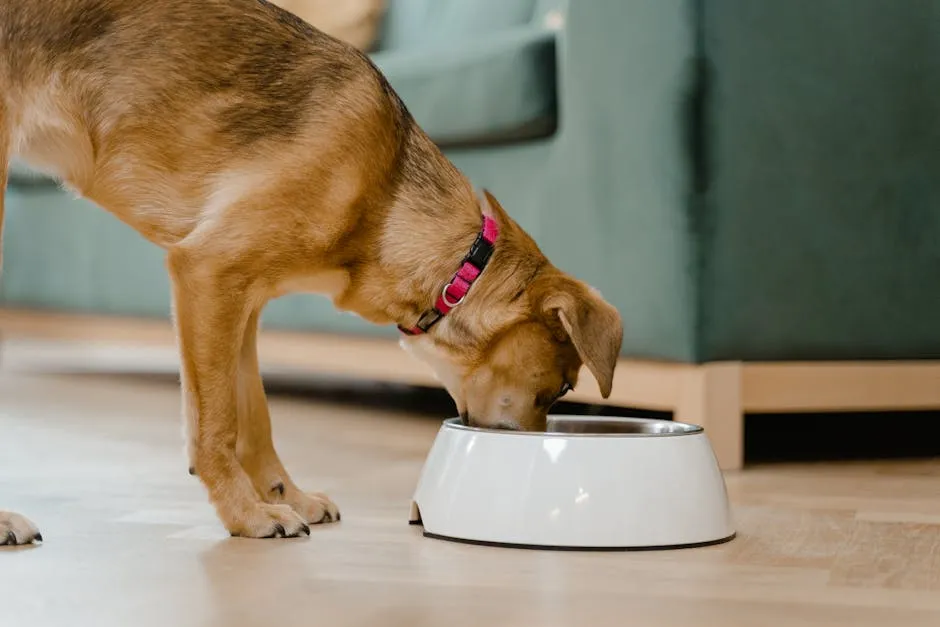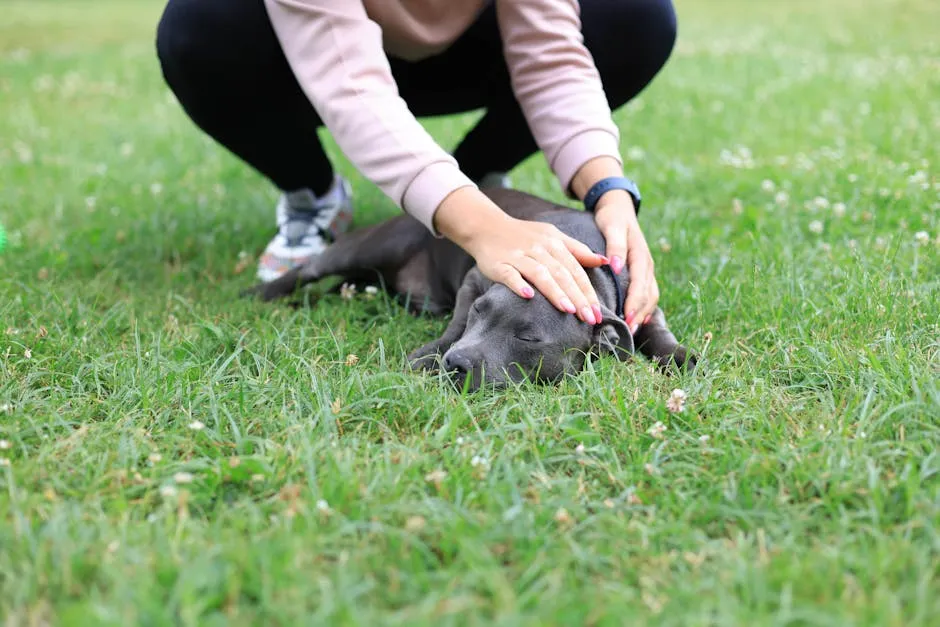Introduction
Canine nutrition is vital for your dog’s health. Many pet owners wonder, “Can dogs eat cottage cheese?” This tasty treat can be a healthy addition to their diet. However, moderation is key to ensure your furry friend benefits without any drawbacks.
Summary and Overview
Cottage cheese is a soft cheese made from curds. It is low in fat and calories but rich in essential nutrients. Its creamy texture and mild flavor make it appealing to many dogs. Pet owners often use it as a tasty snack or as an ingredient in homemade dog recipes.
The nutritional profile of cottage cheese includes protein, calcium, and B vitamins. These nutrients can support your dog’s muscles, bones, and overall well-being. However, feeding cottage cheese should be done in moderation. Always consult your veterinarian before adding new foods to your dog’s diet to ensure it’s suitable for their specific health needs.
Speaking of healthy additions to your dog’s diet, if you’re looking for a nutritious alternative, consider getting some Greek Yogurt Plain. It’s packed with probiotics that can help keep your dog’s gut in check, making it a perfect pairing with cottage cheese!

Understanding the nutritional needs of your dog is essential. To learn more about the importance of proper nutrition, check out Understanding canine nutrition: raw vs. kibble debate.
Nutritional Value of Cottage Cheese for Dogs
Overview of Nutrients
Cottage cheese packs a nutritional punch for your dog. It contains high-quality protein, essential for muscle health and energy. This nutrient helps repair and build tissues, making it particularly beneficial for active dogs.
Calcium is another key component found in cottage cheese. It supports strong bones and teeth, crucial for your dog’s overall structure and growth. Additionally, cottage cheese provides essential vitamins, including B12, D, and E, which play vital roles in maintaining a robust immune system and promoting overall well-being.
Always check the nutritional label when selecting cottage cheese. Opt for low-fat or unsalted varieties to keep your dog’s diet healthy and balanced. Remember, moderation is essential to avoid any digestive issues.

And while you’re at it, why not invest in a Dog Food Storage Container? Keeping your dog’s food fresh and safe from pests is just as important as what you feed them!
Benefits of Feeding Cottage Cheese to Dogs
Health Benefits
Cottage cheese offers several advantages for your dog. First, it supports muscle growth and repair. This is essential for active dogs and those recovering from injuries. The high protein content in cottage cheese helps maintain strong muscles.
Next, if your dog struggles with weight, cottage cheese can help. Its low-fat nature makes it a great option for managing weight. By incorporating it into their diet, you can help your furry friend stay healthy without added calories.
Moreover, cottage cheese is easier on the stomach. Its lower lactose content can promote digestive health. Many dogs that struggle with other dairy products may tolerate cottage cheese better.
Veterinary studies recommend protein intake for dogs, emphasizing its importance in their diet. For instance, dogs need about 1 gram of protein per pound of body weight daily. Cottage cheese is a simple way to help meet this requirement.
Consider trying cottage cheese in small amounts to see how your dog reacts. It’s a delicious way to enhance their diet while providing health benefits.

If you’re really looking to spoil your pup, why not check out this Dog Treats Variety Pack. Treat time just got a whole lot more exciting!
Types of Cottage Cheese Suitable for Dogs
Choosing the Right Cottage Cheese
When selecting cottage cheese for your dog, consider various options. Low-fat and non-fat varieties are excellent choices. They provide necessary nutrients without excess fat that can lead to weight gain.
Unsalted cottage cheese is another safe option. High sodium levels can be harmful to dogs, especially those with heart issues. Always check the label to ensure it’s free from added salts.
Organic cottage cheese can be beneficial too. These varieties are often free from harmful chemicals and additives. If your dog has digestive sensitivities, lactose-free options might be ideal.
For those who enjoy cooking, homemade cottage cheese is a fantastic choice. This way, you control the ingredients and ensure it’s fresh.
When purchasing cottage cheese, look for reputable brands. Choose those that emphasize low-fat and low-sodium products. This ensures your dog receives the best quality without unnecessary additives.

And speaking of cooking, how about a Dog Cookbook for Homemade Treats? It’s a paw-sitively delightful way to treat your furry friend!
How to Introduce Cottage Cheese into a Dog’s Diet
Feeding Guidelines
Introducing cottage cheese to your dog’s meals can be a delightful experience. Start with small amounts to gauge their reaction. A tablespoon mixed in their food is a great way to begin. This helps prevent any sudden digestive issues.
Always monitor your dog for any adverse reactions. Look for signs like upset stomach or diarrhea. If you notice anything unusual, stop feeding cottage cheese and consult your vet.
Mixing cottage cheese with other dog-friendly foods can enhance the experience. Try combining it with cooked vegetables or plain rice. You can also use it as a topping for their favorite kibble. These combinations can make mealtime more exciting and nutritious.
Have you tried cottage cheese with your dog? Share your experience in the comments!

While you’re at it, don’t forget to provide your pup with a cozy spot to enjoy their meals! Check out this Dog Bed that is perfect for snuggling after a hearty meal!
Potential Risks and Side Effects
Monitor for Reactions
While cottage cheese is generally safe, some risks exist. Lactose intolerance affects many dogs. Studies show that about 10% to 15% of dogs may have this condition. Symptoms can include gas, bloating, or diarrhea.
Feeding cottage cheese in excess can lead to weight gain. This is particularly concerning for less active dogs. Always keep an eye on portion sizes to avoid this issue.
Allergic reactions to dairy products can also occur. Symptoms may include itching, swelling, or difficulty breathing. If you notice any of these signs, seek veterinary advice immediately.
Consult your veterinarian if you have concerns about introducing cottage cheese. They can provide guidance tailored to your dog’s health needs.

And to ensure your pup is ready for any mishaps, a Pet First Aid Kit is a must-have in your dog care arsenal!
Alternatives to Cottage Cheese for Dogs
Healthy Dairy Alternatives
If your dog isn’t a fan of cottage cheese, don’t worry! There are plenty of tasty alternatives to consider. Greek yogurt is an excellent option. It’s packed with protein and probiotics, which can promote gut health. Just look for plain, unsweetened varieties to avoid added sugars.
Another great choice is pumpkin puree. It’s not only delicious but also high in fiber. This can help with your dog’s digestion. Plus, dogs usually love the taste!
Plain cooked eggs are another healthy treat. They provide high-quality protein and essential nutrients. Scramble them or serve them hard-boiled for a tasty snack.
Experimenting with different options can be fun! Observe your dog’s reactions and find what they enjoy the most. Each dog has unique tastes, so variety can keep mealtime exciting.

And why not make mealtime even more fun with an Interactive Dog Toy? These toys can keep your dog entertained while you prepare their delicious meals!
Conclusion
Feeding cottage cheese to dogs can offer various benefits. It’s a source of protein and essential nutrients. However, always remember moderation is crucial. Overfeeding can lead to digestive issues or weight gain.
Consult your veterinarian before introducing cottage cheese or any new food. Responsible pet ownership means making informed choices about your dog’s diet. Keep your furry friend happy and healthy with the right nutrition!
FAQs
Is cottage cheese safe for all dogs?
Cottage cheese can be safe for many dogs. However, some dogs may be lactose intolerant. This condition means they cannot digest lactose well, causing gas or diarrhea. Additionally, some dogs may have allergies to dairy. If your dog shows any signs of discomfort, consult your veterinarian.
How much cottage cheese can I give my dog?
A general guideline is to offer about 1 tablespoon for every 10 pounds of body weight. For larger dogs, you can increase this amount slightly. Always start with small portions and observe your dog’s reaction. This helps ensure they tolerate it well.
Can dogs eat flavored cottage cheese?
Flavored varieties can be harmful to dogs. They often contain added sugars, salt, or artificial ingredients that may upset your dog’s stomach. Always stick to plain, low-fat options to keep it safe and healthy.
What should I do if my dog has a reaction to cottage cheese?
If your dog shows signs of an adverse reaction, stop feeding cottage cheese immediately. Look for symptoms like vomiting, diarrhea, or excessive gas. Reach out to your veterinarian for advice on how to proceed based on your dog’s condition.
Is cottage cheese good for dogs with digestive issues?
Yes, cottage cheese can benefit dogs with gastrointestinal problems. Its lower lactose content makes it easier to digest compared to other dairy products. The protein and calcium can also support overall health while providing a soothing option during digestive distress.
Can dogs eat cottage cheese every day?
While cottage cheese can be a healthy treat, variety is important in your dog’s diet. Feeding it daily may lead to digestive upset or nutrient imbalance. Consider it an occasional addition rather than a staple, and always balance it with other foods.
Are there any special considerations for puppies?
Puppies can enjoy cottage cheese, but moderation is key. Start with small amounts, as their digestive systems are still developing. Avoid high-fat options, and consult your vet to ensure it fits within their growing dietary needs.
Please let us know what you think about our content by leaving a comment down below!
Thank you for reading till here 🙂
All images from Pexels





